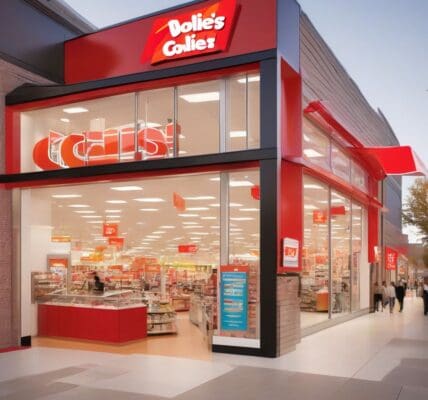In a trial centered around the proposed $24.6 billion merger between Kroger and Albertsons, the grocery giant Kroger is defending itself against allegations of price gouging. This legal battle, occurring in Colorado, is part of a broader scrutinization of the merger’s implications for competition in the grocery industry. As the senior director of pricing for Kroger, Andy Groff was called to testify, marking yet another occasion where his insights into pricing strategies have come under intense examination.
The plaintiffs in this case have pointed to Groff’s previous statements during a merger review in Oregon, suggesting that he appeared to admit to price gouging practices. However, Kroger has swiftly countered these assertions, claiming that the data used by the plaintiffs was selectively chosen. They argue that the analysis only compared two variables: the cost of goods—which indicates how much Kroger pays for products—and the retail prices paid by consumers. Notably absent from this evaluation are the rising costs related to labor, warehousing, transportation, and other operational expenses incurred by the company.
Understanding the complexity of grocery pricing is vital. Retail pricing is influenced by multiple factors beyond the basic cost of goods sold. As stated by Kroger, “Retail price also includes the costs to run a grocery store.” This encompasses logistics such as getting products to store shelves, advertising, and various labor costs. It’s essential to recognize that prices need to account for all these costs to ensure that grocery stores remain operationally viable.
The aftermath of the pandemic has exacerbated these challenges. The grocery sector has seen significant cost escalations across labor, transportation, and advertising—factors that contribute to the overall pricing strategies adopted by retailers. Amid these pressures, Kroger has made a concerted effort to keep prices manageable for consumers. For example, during the height of pandemic restrictions, Kroger maintained the retail price of meat below the rate of cost inflation, an action that underscores their commitment to affordability during challenging times.
Kroger’s ability to navigate these headwinds has reportedly led to stable profit margins. Furthermore, their competitive positioning against major rivals like Walmart has improved, particularly regarding essential products like milk and eggs. This is significant as it suggests that Kroger is not only mindful of its pricing in general but is actively working to maintain a favorable price point for its customer base, especially on staple items.
Addressing the allegation of price gouging head-on, Kroger has declared that the claims are not only misleading but outright false. The company’s strategic model emphasizes consistently investing to lower prices, thereby attracting more shoppers to their stores. Charles McMullen, Kroger’s Chairman and CEO, made this point clear during the discussion of the company’s latest earnings report, reiterating that this lower-price approach will extend to Albertsons following the merger.
Albertsons, a key player in the grocery sector, operates a substantial number of stores under various banners. At the time of the merger discussions, its prices were reportedly higher than competing grocery retailers, including Kroger. This difference in pricing strategy is crucial to understanding Kroger’s plans post-merger, which aim to harmonize pricing strategies between the two entities, potentially offering consumers better deals and options.
As the legal proceedings unfold, anticipation builds regarding the outcome of the Florida court’s decision, as well as similar merger reviews in other states, including Washington. This scrutiny is vital for maintaining competitive integrity within the industry, particularly for consumers who rely on grocery stores for their daily needs.
Currently, Kroger serves over 11 million customers each day through a combination of digital shopping platforms and physical stores. The company not only boasts a significant presence in the grocery market but ranks high among North America’s leading food and consumables retailers.
In summary, while price gouging allegations pose significant challenges, Kroger appears committed to its foundational model of offering lower prices and maintaining competitiveness within the market. As these legal proceedings continue, the grocery giant’s strategies and responses will remain closely watched by industry experts, regulators, and consumers alike.
Kroger’s case serves as a crucial reminder that pricing strategies in the grocery sector are influenced by a variety of factors and that the implications of mergers can have far-reaching impacts on market dynamics and consumer choices.










